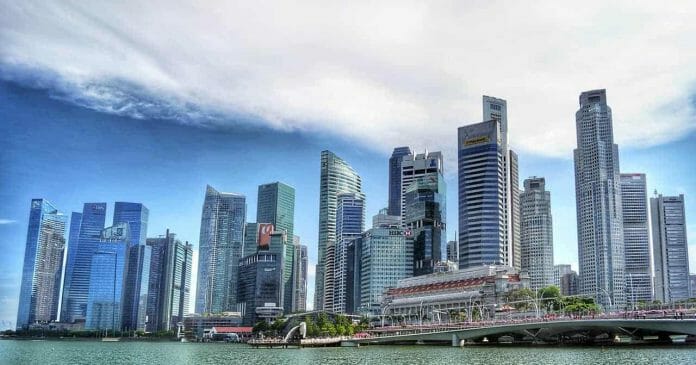As part of the de-carbonisation efforts, Singapore races to bring forward its net-zero target by tapping on hydrogen.
This is following Deputy Prime Minister Lawrence Wong’s announcement that Singapore will raise its climate target to achieve net-zero by 2050 as part of its long-term low emissions development strategy.
“Singapore will reduce emissions to around 60 million tonnes of carbon dioxide equivalent (MtCO2e) in 2030, after peaking emissions earlier,” Lawrence Wong was quoted as saying at the Singapore International Energy Week.
At present, the Lion City’s Nationally Determined Contribution statement pledges to peak emissions at 65 MtCO2e around 2030.
“The difference is equivalent to reducing Singapore’s current transport emissions by two-thirds,” Mr Wong remarked.
The National Climate Change Secretariat (NCCS) and the Ministry of Sustainability and the Environment (MSE) said in a joint press release that the targets are contingent on technological advances as well as the economic viability of low-carbon technologies such as hydrogen and carbon capture, utilisation and storage (CCUS).
According to the press release, it will also depend on effective international collaboration in areas such as carbon credits and renewable energy imports.
According to a report published by World Resources Institute (WRI) last week found that the latest pledges made by countries would only reduce global emissions of greenhouse gases by 7 per cent from 2019 levels by 2030, which is “woefully inadequate” to avert a rise in global temperatures that scientists say will worsen droughts, storms and floods.
The report also stressed that countries must strengthen their targets by about six times or at least 43%, in order to meet the Paris Agreement’s goal of limiting global temperature rise by 1.5 degrees Celsius.
The Ministry of Trade and Industry (MTI) of Singapore, in their official release, said hydrogen could supply up to half of Singapore’s needs by 2050.
Besides providing an alternative for domestic emissions, low-carbon hydrogen and hydrogen-derived fuels can also be used in the maritime and aviation sectors, both of which are carbon-intensive, according to the press release.
MTI said Singapore will experiment with the use of advanced hydrogen technologies as well as conduct research and development work to advance them further, to prepare for hydrogen deployment.
To kickstart hydrogen efforts, the Singaporean government will issue an Expression of Interest for a small-scale commercial project utilising low-carbon ammonia for power generation.
With this, Singaporeans may start to have access to electricity generated from low-carbon hydrogen from 2027. An additional S$129 million will be set aside for the Low Carbon Energy Research Programme, with a significant amount to be directed towards projects that can help Singapore import, handle, and utilise hydrogen and its carriers safely and at scale, according to Lawrence Wong.
A total of S$55 million of research funding has been awarded through the project to date.
The Singaporean government will also work closely with industry and international partners to enable the formation and scaling up of supply chains for low-carbon hydrogen.
According to MTI, land and infrastructure plans will also be developed to support the mass deployment of hydrogen. This includes building infrastructure to import, store and transform the hydrogen into power. It will work with the industry and the education sector to help prepare Singaporeans for the global hydrogen economy.
With the adoption of hydrogen expected to bring about new economic opportunities for Singapore.









